The Happy Days Theme Song is instantly recognizable. Just reading the lyrics:
Sunday, Monday, Happy Days
Tuesday, Wednesday, Happy Days
Thursday, Friday, Happy Days
Saturday
What a day
Rocking all week with you
…and you can almost hear the catchy melody penned by Charles Fox, with lyrics by Norman Gimbel. This tune is more than just an earworm; it’s a cultural touchstone, forever linked to the beloved sitcom Happy Days. Let’s delve into the history of this iconic TV theme song.
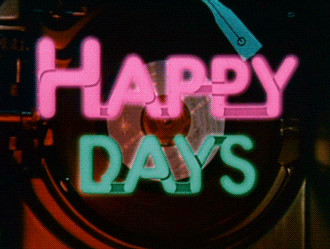 Gif animation of Happy Days cast dancing
Gif animation of Happy Days cast dancing
From Rock Around the Clock to Happy Days: The Theme Song Evolution
Interestingly, Happy Days didn’t always open with the song we know and love. For its first season in 1974, the show’s creator, Garry Marshall, opted for a different tune: Bill Haley & His Comets’ classic, “Rock Around the Clock.” A newly recorded version of this rock and roll anthem, specifically for the show, blasted through TV speakers during the opening credits. While this version wasn’t commercially available then, the original 1954 recording experienced a resurgence on the Billboard charts in 1974, thanks to the show’s popularity.
The closing theme in the initial seasons also featured an early, different recording of the “Happy Days” song, distinct from the standard version that would become so famous. This shows the evolution of the theme and the producers’ journey to finding the perfect sonic identity for Happy Days.
Gimbel and Fox: Masters of the TV Theme Song
The songwriting duo behind the definitive Happy Days theme song, Norman Gimbel and Charles Fox, were no strangers to creating memorable television themes. Their impressive portfolio includes themes for other iconic shows like Love, American Style, Wonder Woman, Laverne & Shirley, and The Love Boat. They had a knack for capturing the essence of a show in a short, catchy musical package.
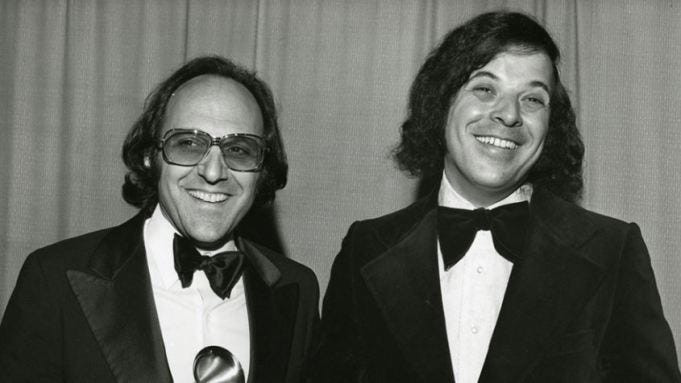 Norman Gimbel and Charles Fox in the 1970s, composers of the Happy Days theme song
Norman Gimbel and Charles Fox in the 1970s, composers of the Happy Days theme song
Charles Fox, in a recent interview, reminisced about crafting the Happy Days theme song, highlighting the collaborative magic he shared with Norman Gimbel. Their partnership resulted in a string of hits that defined an era of television.
Pratt & McClain and the Chart-Topping Hit
The version of the Happy Days theme song that most people recognize, and the one that truly cemented its place in pop culture, was performed by Pratt & McClain. Produced by Steve Barri and Michael Omartian, and featuring lead vocals by Jim Haas and backing vocals by The Ron Hicklin Singers, this rendition debuted in season three and ran until season ten.
Released as a single in 1976, Pratt & McClain’s “Happy Days” soared into the Billboard Top 5. This success mirrored the show’s own triumph; Happy Days reached the #1 spot in the 1976-77 television season, dethroning All in the Family. The popularity of the Happy Days theme song as a single further amplified the show’s cultural impact.
 Pratt & McClain Happy Days single record cover
Pratt & McClain Happy Days single record cover
The unexpected success of the single led to an album deal for Pratt & McClain. However, they found themselves somewhat pigeonholed by the 1950s retro theme. Their album cover and some of their subsequent music were tailored to fit the sock-hop image associated with Happy Days, showcasing the powerful influence of a hit theme song on an artist’s career.
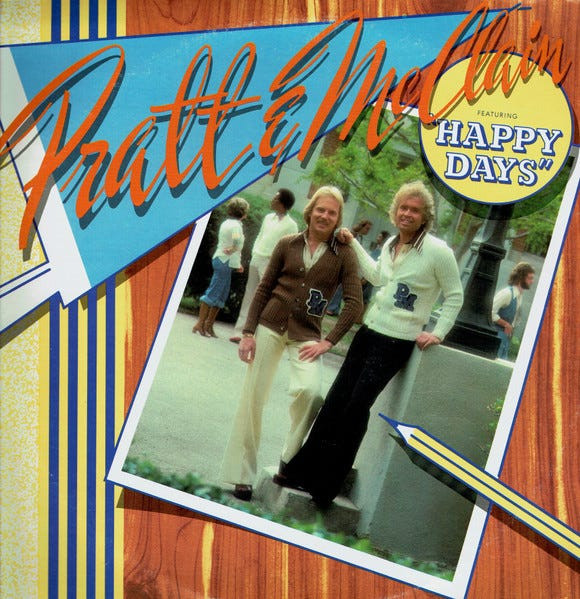 Pratt and McClain album cover featuring the duo in letterman sweaters
Pratt and McClain album cover featuring the duo in letterman sweaters
Before their Happy Days fame, Pratt & McClain were known as Brother Love, highlighting the transformative power of a theme song in reshaping a band’s identity and trajectory.
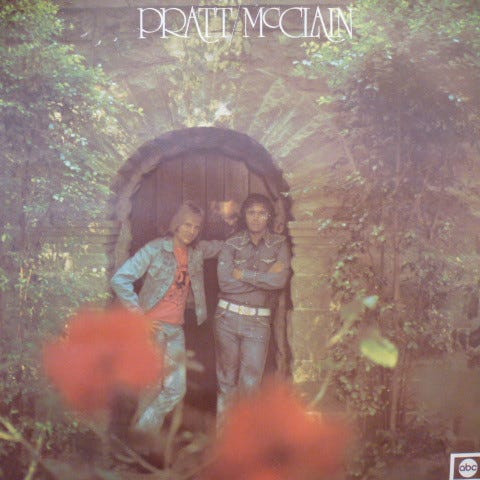 Brother Love single record cover, the former band name of Pratt & McClain
Brother Love single record cover, the former band name of Pratt & McClain
The Bronze Fonz and the Song’s Enduring Legacy
The lasting impact of Happy Days and its theme song is evident even today. In Milwaukee, the setting of Happy Days and Laverne and Shirley, a bronze statue of Henry Winkler’s iconic character, Fonzie, stands on the Riverwalk. This “Bronze Fonz” statue serves as a testament to the show’s enduring popularity and the nostalgic power of the Happy Days theme song.
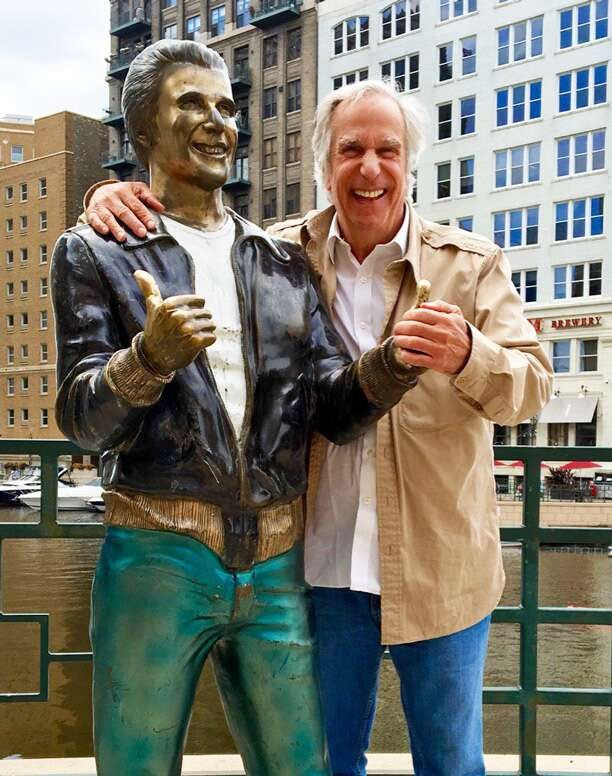 Henry Winkler with the Bronze Fonz statue in Milwaukee
Henry Winkler with the Bronze Fonz statue in Milwaukee
The Happy Days theme song is more than just an introduction to a television show; it’s a symbol of an era, a piece of pop culture history, and a tune that continues to bring a smile to generations. From its humble beginnings to its chart-topping success and lasting legacy, the story of this theme song is a happy one indeed.

